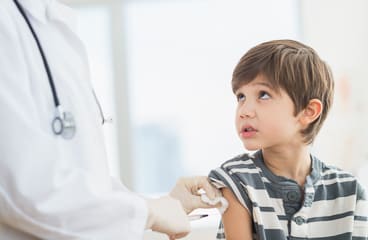Overview

Rabies is a disease caused by a virus that can affect the brain and spinal cord (central nervous system). You can get rabies when you are exposed to an animal that has rabies. This can happen through a bite, scratch, or other contact.
Your doctor can use two medicines to help your body fight the virus before it causes an infection. One is human rabies immunoglobulin (HRIG). It works by giving your body a type of protein called an antibody to stop the rabies virus. The other medicine is the rabies vaccine. It helps your body produce its own protection against the rabies virus. When you get these shots before serious symptoms appear, you should not get infected with rabies.
Your doctor will give you a shot schedule. Make sure that you do not miss any doses. You need to get all the doses for the rabies vaccine to work.
Follow-up care is a key part of your treatment and safety. Be sure to make and go to all appointments, and contact your doctor if you are having problems. It's also a good idea to know your test results and keep a list of the medicines you take.
How can you care for yourself at home?
To prevent contact with rabies
- Make sure your dog, cat, or ferret gets the rabies vaccine.
- Avoid contact with animals that are likely to have rabies. And teach your children to avoid these animals too. These animals include bats, raccoons, skunks, foxes, and coyotes.
- Signs of rabies in animals may include excessive saliva or sometimes foaming at the mouth and paralysis. A pet with rabies also may behave differently than usual, such as acting shy when the pet usually is friendly. A wild animal with rabies may have no fear of humans.
- Make sure garbage and other items that attract animals are in closed containers that animals can't open.
- Secure open areas of your home, such as pet doors, chimneys, unscreened windows, or any place that wild or stray animals could enter.
- Never handle a dead or wounded animal without protecting yourself with thick gloves and other protective gear.
To take care of an animal bite
- Wash any animal bite, scratch, or open sore right away. Use soap and water.
- Call your doctor to find out how to care for your wound. If you think you've been exposed to rabies, you'll need a series of shots called postexposure prophylaxis (PEP). When you get these shots before serious symptoms appear, you should not get infected with rabies.
Other instructions
When should you call for help?
Watch closely for changes in your health, and be sure to contact your doctor if you have any problems.
Where can you learn more?
Go to http://www.healthwise.net/patientEd
Enter U105 in the search box to learn more about "Preventing Rabies Infection: Care Instructions".
Current as of: September 30, 2025
Author: Ignite Healthwise, LLC Staff
Clinical Review Board
All Ignite Healthwise, LLC education is reviewed by a team that includes physicians, nurses, advanced practitioners, registered dieticians, and other healthcare professionals.

